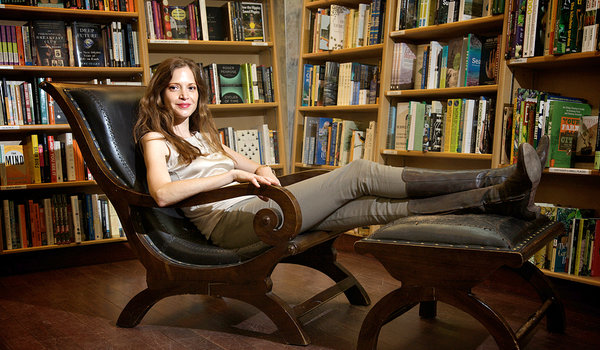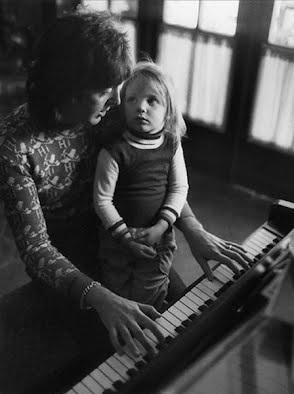On delicious conversations
“It was just what you did automatically, go to lunch with friends. And it was so different than now. People were at the top of their form.
Those restaurants were so beautiful, and people felt they had to live up to the elegance of the setting. You wore your latest Givenchy or Balenciaga. And you felt that there were delicious conversations taking place at every table. Now you go into a place and everything looks transactional.”
--Socialite Deeda Blair on lunching with other New York high society wives in the mid-20th century.
Everything about the "Here's to the Ladies Who Lunched!" piece in the February issue of Vanity Fair was thoroughly entertaining, and I highly recommend reading it. The glamour of it all is fascinating.
I got to thinking about why things seem to have changed so much since then. I think mostly it's that people used to have to condense all their social interactions into an hour or two a day, at most. So during those short periods of time, they went all out: Designer clothes, full makeup, fabulous anecdotes, juicy gossip, and all the rest.
But modern technology has made it so that we can represent ourselves publicly much more often. Now, during our in-person times, the stakes are much lower. You can wear jeans and a t-shirt. If you're in a bad mood you can be a little rude; if you're in a funk you can be withdrawn. You can always make it up with a clever Tweet or charming email later on. Often, what you do online seems to matter more than your in person behavior -- after all, content on the web lasts longer and reaches much farther.
Anyway, I don't think this shift is an entirely good thing. This is partly because I think in-person interactions are the only things that truly feed us as humans -- and also because I'd like to get dressed up and wear eyeliner more often.
Photograph from VanityFair.com by Tony Palmieri/Conde Nast archive; Digital Colorization by Lorna Clark. Left: the Duchess of Windsor and C. Z. Guest leaving La Côte Basque restaurant, 1962. Right: Lee Radziwill and Truman Capote outside the Colony restaurant, 1968.
On looking good in photos
Paul and Stella McCartney, Los Angeles, 1975. By Harry Benson
"You look stupid until a year later, when you think, 'Not bad. What was I complaining about?'"
--Harry Benson, the photojournalist whose 40-year career has included prominent work for Life, Vanity Fair, and the New Yorker, on how people react to photos of themselves (via his recent interview with the New York Observer.)
Moments of awesomeness
“I feel like I got a winning lottery ticket in my life and the rug could be pulled out from under me at any time,” Ms. Zuckerberg said. “I am going to appreciate every last moment of awesomeness I can get.”
The profile of Randi Zuckerberg (sister of Facebook founder Mark) in this week's New York Times was not exactly endearing -- I thought she came across as a bit over-the-top ridiculous, which could very well be due to how the piece was written and edited. But I do completely agree with her closing sentiment.
We may not all be as financially blessed as Ms. Z, but relatively, most of us have it pretty darn good -- and we could all stand to embrace the awesomeness available to us more fully.
Hopeful shopping

Last week the New York Times' Thursday Styles section profiled bookstore owner Sarah McNally, who owns "the determinedly WiFi-free McNally Jackson Books on Prince Street in Nolita." It was a really enjoyable read, and here are a few reasons why:
The machine can cost more than $100,000, a huge investment for an independent bookstore, but it makes sense when the NYT describes it as "Ms. McNally's grand gambit against the e-book pestilence." I also loved this description:
Ms. McNally gazed tenderly at the behemoth as it printed 'Veiled Women,' by Marmaduke Pickinthall (1913) for a customer. "Look," she cooed, as mechanical thingamabobs measured and bound the new book. "It's still warm, like cookies fresh out of the oven."
And the profile is full of little tidbits as evidence. To wit:
She sipped tea, coughing, her thin body shaking. Bad cold? "Technically, I had tuberculosis," she said with a shrug.
I always think of aspirational shopping as purchasing a fancy pair of shoes that don't fit into your lifestyle, a pair of jeans that are too snug, or a luxury car you can't quite afford. But buying books can be similar in that it represents the kind of person you hope to be, knowledge you hope to have in the future. I never thought of it that way until I read this:
"I believe that within every great reader there are multitudes of people," she said... Book buying is aspirational, she added. "They are deeply hopeful purchases."

